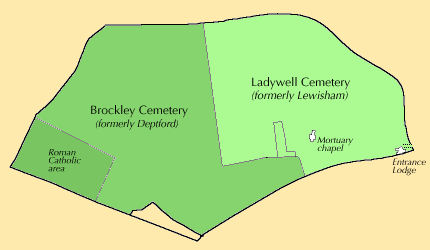 |
| Image from Workhouse Tales -The Daily Chronicle ( undated) |
The Habitual Drunkards Act of 1879 had enabled residential treatment as an alternative to prison for habitual drunkards, although its cost was prohibitive for many poor and working-class women. The 1898 Inebriates Act empowered local councils to establish and administer certified inebriate reformatories which were paid for by central government, local authorities and charitable donations.
In a bosky area of Brockley cemetery close to Ivy road are interred in peaceful repose many of those who where buried in public graves without any visible presence to remind the passer by of lives long gone. However, one notable burial in this area of unmarked graves (Annie is buried with eight others in burial plot Q/Con/302) from August 1885 and on whose burial certificate she is described as a hawker was a woman called Annie Parker. She died aged 38 years in the Greenwich Union Workhouse. *
Following online burial research, I lighted on selective details of her troubled life, which is well captured in a sympathetic article from 2015 by crime historian Dr.Nell Darby on the Criminal Historian website.
The article is I believe worth replicating in full and I hope the interested reader will find it thoughtful and informative :
Caricature of Robert Henry Bullock-Marsham on the Bench, by "Spy" Vanity Fair.
Annie Parker often appeared before the Greenwich Stipendiary Magistrate Mr. R.B.H. Marsham ( d.1913) who also presided at Bow Street Magistrates Court and played cricket for Marylebone Cricket Club (MCC)
For readers who might like a more scholarly overview of the much contested social issue of drinking in Victorian and Edwardian Britain -Thora Hands 2018 book is well recommended .
Catherine' Kate' Eddowes , also described as a hawker, the fourth victim in the 'Jack the Rippers' murders of 1888, was admitted to the Greenwich Workhouse in 1876-1877.



.png)
